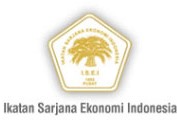Fiscal Sustainability and Risks of Provincial Government After Pandemic
(1) Financial and Development Supervisory Agency
Abstract
The Covid-19 pandemic that has hit the world since the year 2019 puts fiscal pressure on the Governments of Indonesia. The Government of Indonesia has spent very big expenses to deal with the pandemic and recovery the national economic conditions. This condition will increase a fiscal risk level to achieve Gold Indonesia Vision of the year 2045. This article aims to assess the impacts of Covid-19 pandemic to fiscal sustainability of the central and provincial governments in Indonesia and identify the risks faced by the central and provicial governments after this outbreak. By using quantitative descriptive analysis and focus group discussion, it was identified an increase in the level of fiscal vulnerability in the central and provincial governments in Indonesia. The results of an analysis for the provincial government level conclude that provincial governments throughout Indonesia are under pressure on their fiscal sustainability. This is reflected in the decline in the Tax ratio, the increase in Debt to Income, and the increase in the budget deficit. This encourages the emergence of new risks that can interfere with efforts to achieve development goals. Several fiscal policies need to be taken to maintain fiscal sustainability like intensification and extensification of taxes and improving the quality of regional spending.
Keywords
Full Text:
PDFReferences
BPK RI. (2020) Laporan Hasil Reviu atas Kesinambungan Fiskal. 19e/LHP/XV/ 06/2020. Badan Pemeriksa Keuangan.
Desdiani, N. A. et al. (2022). Local Budget Resilience in Times of COVID-19 Crisis: Evidence from Indonesia. Economies, 10(5), 108. Doi: https://doi.org/ 10.3390/economies10050108.
European Commision (2016). Sustainibility of Finance Public. European Commision.
Gorina, E. (2013). Fiscal Sustainability of Local Governments: Effects of Government Structure, Revenue Diversity, and Local Economic Base. Arizona State University [Preprint].
Himawan, A. R., & Pribadi, Y. (2021). Risk Management Implementation in Indonesian State Budget Fiscal Risk Disclosure. Optimum: Jurnal Ekonomi dan Pembangunan, 11(1), Doi: https:// doi.org/10.12928/optimum.v11i1.3277.
International Monetary Fund (2016). Analyzing and Managing Fiscal Risks - Best Practices. Policy Papers, 16(25). Doi: https://doi.org/10.5089/9781498345668.007.
Kapuscinska, K. Z., & Matejun, M. (2014). Risk Management in Public Sector Organizations: A Case Study.
Roberts, B. H. (2003). Regional Risk Management and Economic Development.
Sakri, D. (2020). Menakar Dampak Pandemi COVID-19 terhadap Perekonomian Daerah.
Shokirov, M. M. (2020). Impact of the Corona virus Pandemic on the Global Economy.
Thies, C. G. (2015). State fiscal capacity and state failure. European Political Science Review, 7(2), 167–187. Doi: https://doi. org/10.1017/S175577391400037X.
Fiscal policy Agency (2020). Tinjauan Keuangan, Ekonomi, dan Fiskal: Mengurangi Dampak Pandemi Covid 19 dan Mendorong Pertumbuhan Ekonomi Yang Positif.
Zahariev, A. et al. (2021). Fiscal sustainability and fiscal risk in the EU: forecasts and challenges in terms of COVID-19. Entrepreneurship and Sustainability Issues, 8(3), 618–632. Doi: https://doi.org/10.9770/jesi.2021.8.3(39).
Refbacks
- There are currently no refbacks.

This work is licensed under a Creative Commons Attribution 4.0 International License.






